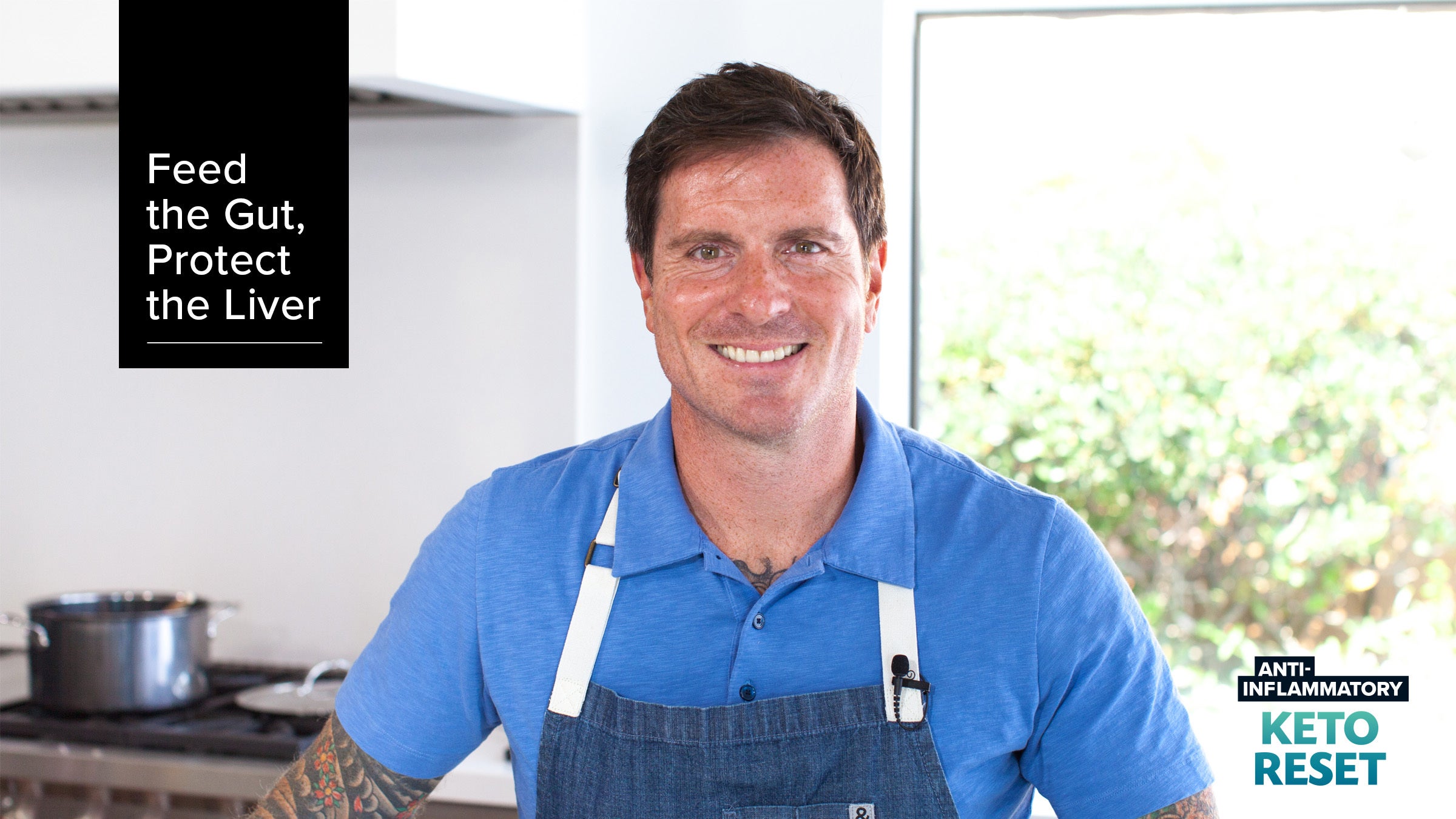The Anti-Inflammatory Keto Reset, Week 2: Autoimmune Health

Welcome to week two of the Anti-Inflammatory Keto Reset!
What is an autoimmune disease?
Autoimmune diseases such as rheumatoid arthritis, lupus and autoimmune thyroiditis are painful, disruptive and often devastating conditions. At their core, they have one thing in common: an out-of-control immune response, linked with systemic inflammation.
During an immune response, there is an increase in the production of free radicals, which can result in an imbalance of pro-oxidants to antioxidants, known as oxidative stress. Therefore, an eating approach that is full of anti-inflammatory and antioxidant foods while eliminating known inflammatory foods could be beneficial at reversing the oxidative stress that comes with many types of autoimmune conditions. The right eating plan may help ease pain and help improve symptoms of an autoimmune disorder.
In general, avoid alcohol, sugar, grains, dairy and red meat, and focus on vegetables, low-sugar fruits, healthy fats and fish, just like we are for this Anti-Inflammatory Keto Reset.
Feed the gut, protect the liver
Two foods that make an appearance in this week’s delicious recipe are kimchi and Brussels sprouts. Here’s why these foods are such a boon for reducing inflammation but also for autoimmune conditions.
Kimchi
Traditionally fermented kimchi is loaded with probiotics, which help balance the gut microbiome and improve the intestine’s barrier function. These are two critical functions in protecting against autoimmune conditions. Studies show that people with rheumatoid arthritis who take probiotics feel a significant reduction in stiffness, swelling, pain and inflammation.
Other good dairy-free probiotic sources include sauerkraut, fermented vegetables, pickled ginger, coconut yogurt with added probiotics, and water kefir.
Be sure to watch and try Chef Seamus’ recipe for Roasted Brussels Sprouts with Bacon & Kimchi but here are a few other ways to put kimchi to use in your anti-inflammatory diet: Purée kimchi with mustard and horseradish for a zesty topper for lettuce cups; grill chicken or turkey sausage, slice on the diagonal and serve on a bed of kimchi; mix kimchi with grated carrots, daikon radish and shredded spinach for an easy side.
Brussels sprouts
Like other sulfur-rich foods (cauliflower, radishes, cabbage, onions, kale), Brussels sprouts are rich in a powerful antioxidant called glutathione, which may help ease symptoms of an autoimmune disease. It’s key in taming chronic inflammation and protecting against oxidative stress. Studies show glutathione status can be diminished by as much as 50% in people with autoimmune disorders.
Brussels sprouts are the star ingredient in Chef Seamus’ recipe of the week. Also try the following creative ways with Brussels sprouts that go beyond pan roasted. Toss halved Brussels sprouts in olive oil, garlic and red pepper flakes and grill until tender; cook Brussels sprouts, cauliflower and leeks in broth then purée until smooth for a creamy, dairy-free soup. Grate or shred Brussels sprouts, red cabbage, celery and onions and dress with mayonnaise and apple cider vinegar for an easy slaw.
Cooking demo
Here’s Chef Seamus’ recipe of the week. We dare you not to drool. The full recipe can be found in your challenge cookbook.